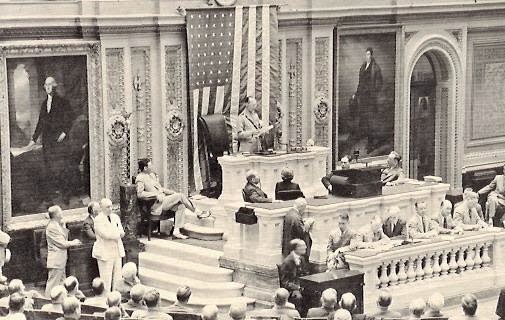By: Phil Kohn. Dedicated to the memory of his father, GM3 Walter Kohn, U.S. Navy Armed Guard, USNR, and all men and women who have answered the country’s call in time of need. Phil can be contacted at ww2remembered@yahoo.com.
U.S. Army Air Forces B-24 Liberator bombers, flying from airfields near Benghazi, Libya, bomb the heavily defended Ploieşti oil fields in Romania on June 12. In Libya, the retreating British, being pushed by Rommel’s Germans, are only 15 miles from the Tobruk defensive perimeter. German submarine U-202 lands four German saboteurs on the beach at Amagansett, Long Island, about 115 miles east of New York City. Their mission is to sabotage economic targets within the U.S. and to spread a wave of terror by planting explosives in public places.
On June 13, President Franklin Roosevelt issues Executive Order 9182, creating the Office of Strategic Services (for intelligence) and the Office of War Information (for propaganda). In North Africa, British and South African troops begin to evacuate the Gazala Line. German submarine U-157 is depth charged and sunk northeast of Havana, Cuba, by U.S. Coast Guard cutter USCGC Thetis.
In Libya, British positions have become untenable and Gen. Claude Auchinleck, commander-in-chief, Middle East, based in Cairo, on June 14 orders British Eighth Army Commander Gen. Neil Ritchie to withdraw from all forward positions. In Bridgeport, Connecticut, the General Electric Company releases to the Army its new M1 shoulder-fired rocket launcher, commonly referred to as the “bazooka.”
Rommel’s 21st Panzer Division reaches Sidi Rezegh, Libya, on June 15. In Washington, D.C., exiled King George II of Greece addresses the U.S. Congress.
Two British convoys heading for Malta both suffer heavy losses on June 16. One turns back to Alexandria without delivering any cargo, while the other makes it to Malta, but with only two of the six original supply ships surviving the voyage. German submarine U-584 lands a second team of four saboteurs at Ponte Vedra Beach, Florida, south of Jacksonville. These four are to link up with the team landed in New York on June 12 and cause mayhem. However, two of the New York team decide to renege on their participation and they inform the FBI of the plans. All eight men are arrested on June 27 and no sabotage takes place. After a trial, six of the eight are executed; the two who cooperated with the government are given jail terms.
After almost two weeks of a punishing artillery barrage against Sevastopol, German infantry on June 17 begins fighting its way into the city. In Tokyo, Prime Minister Hideki Tojo is shot in the arm by a would-be assassin — a Korean nationalist — who in turn is shot and killed by Japanese police. The British withdraw from Sidi Rezegh, Ed Duda and El Adem, Libya. President Roosevelt signs a bill raising the minimum pay of servicemen to $50 per month. The first issue of “Yank, the Army Weekly” magazine makes its debut, with a cover price of 5 cents.
On June 18, Tobruk, Libya — garrisoned mainly by the 2nd South African Infantry Division, commanded by Gen. Hendrik Klopper — is surrounded by Rommel’s Afrika Korps. Some Allied troops are forced to pull back into western Egypt as Axis forces reach Kambut, 50 miles east of Tobruk. In New York, the U.S. Army establishes the Manhattan Engineering District as part of the Manhattan Project, the goal of which is developing nuclear weapons.








